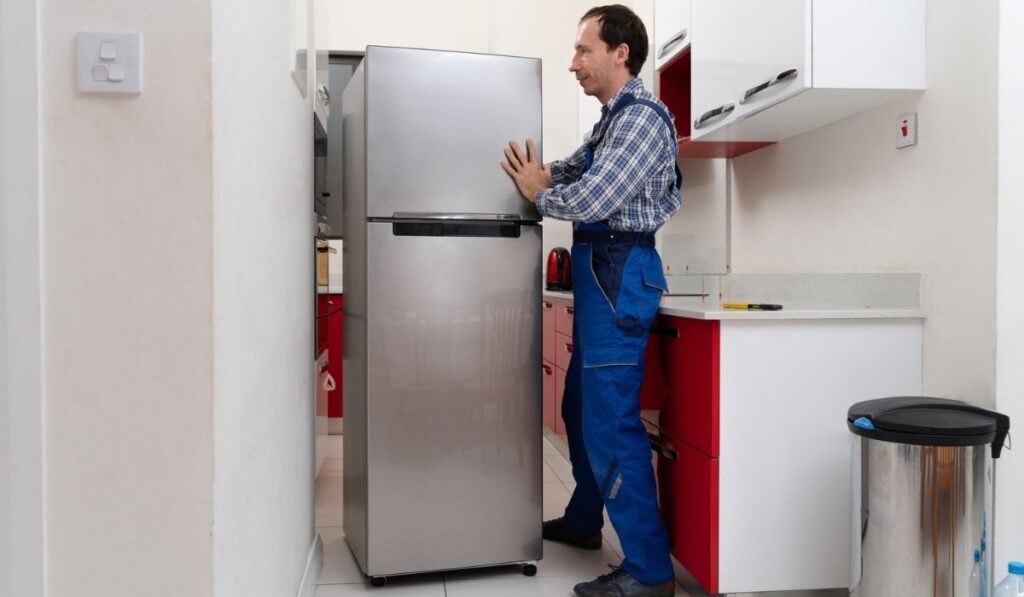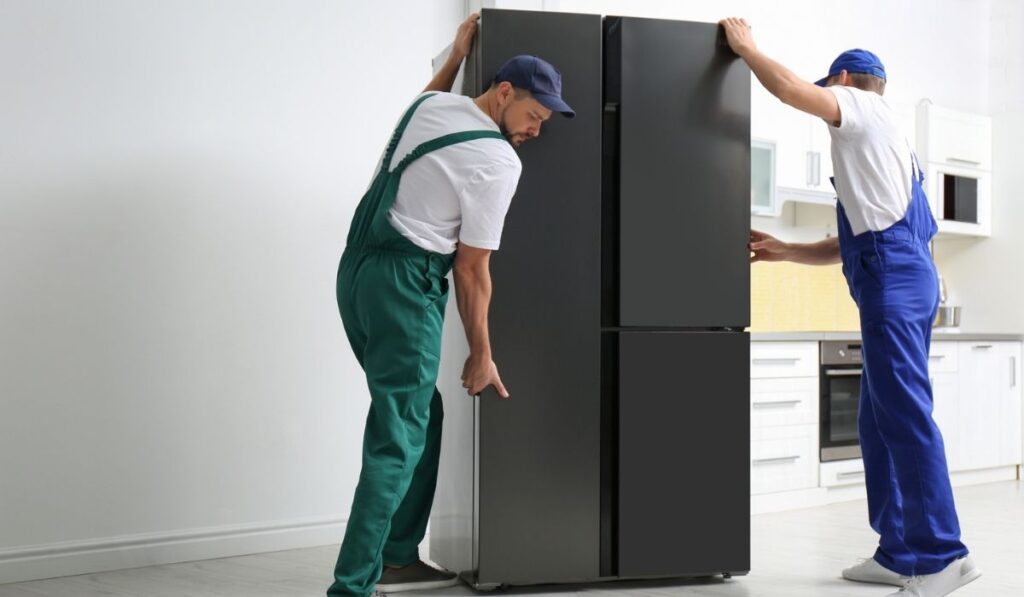Moving a refrigerator may sound like a relatively simple and uneventful affair. Unfortunately, it’s more complicated than you might think. One mistake many people make when moving a refrigerator is plugging it back in too soon afterward. That might sound like no biggie, but it can cause some big issues.
Plugging the refrigerator in too soon after moving can damage the compressor, which can, in turn, affect the fridge’s temperature, cause vibrations and loud noises, cause food and medicines to perish, and ultimately stop the refrigerator from working at all.
Unless you want a faulty fridge on your hands, you should take this matter seriously. It’s not rocket science; you just need to take some precautions to prevent issues later on. Let’s look at how long you should wait before plugging in your fridge again and what might happen if you fail to do so.
What Happens if You Don’t Let a Fridge Settle After Moving?

Sometimes, we aren’t patient enough and just want to plug a fridge in immediately after moving it. While this may seem like a harmless action, many issues can result.
Below are some of the possible issues you can encounter if you plug in your refrigerator too soon. Knowing these will help you understand the importance of waiting a while before after you move.
It Affects the Refrigerator’s Compressor
The compressor is one of the most important components of the refrigerator, and if it’s not functioning properly, you’ll have to go through a lot to get it fixed. Furthermore, a faulty compressor can affect other parts of the fridge, causing more problems to arise.
Unfortunately, it’s not so easy to detect when a compressor has issues. You might only notice that your fridge is slowing down and not running as well as it used to. You might have to replace the compressor once that happens.
It Affects the Fridge’s Temperature
Once your compressor becomes faulty, the temperature in your refrigerator might be affected. It’ll be difficult for cold air to circulate in the fridge, and your food items might not be as cold as they should be. What good is a fridge that doesn’t stay cold?
It Causes Food to Perish
It all comes back to the faulty compressor. Once that part of the refrigerator is broken, it’ll affect the appliance’s temperature, which will, in turn, affect the food in the fridge.
Since a refrigerator is meant to protect perishable food, a slight imbalance in the temperature can cause those foods to go bad almost immediately.
Another item that can be affected in such a situation is medicine. Some medicines require a specific temperature to stay effective. If the refrigerator can’t provide the correct temperature due to a faulty compressor, the medicine will also go bad alongside the food.
Loud Noises From Your Fridge
Once your compressor is affected, there’s a high chance that you’ll hear loud noises coming out of your fridge. This sound can be pretty annoying since you have to listen to it as long as your fridge stays on or until you fix or replace the compressor.
Your Refrigerator Vibrates
It’s always hard for faulty compressors to come on, and you might notice that your refrigerator is vibrating as a result. This is usually what happens before the appliance stops working completely.
You’ll have more than just a broken compressor to deal with when that happens. A vibrating fridge can cause food to spill over and medicine containers to break.
The Compressor Goes On and Off
The compressor is already faulty, so it’ll probably turn on and off. At this point, you need to thoroughly inspect your compressor to prevent something as bad as an explosion.
The Refrigerator Shuts Down Often
This is usually the case after the appliance starts vibrating. At this point, you might not even be able to replace the compressor anymore. You might have to get a new fridge. This is because the vibrations have caused permanent damage.
How Long Should I Wait to Plug in a Fridge After Moving It?

Now that you know that there are several issues attached to plugging in your fridge immediately after moving it, you’re probably wondering how long you should wait. For starters, you can plug in the refrigerator right away if it was only moved within the same space.
However, if you moved it from one part of a building to another or an entirely different building, you should wait at least 12 hours before plugging it in again.
The oil in the compressor coagulates when a fridge is left out in cold air for too long. The fragile parts and fluids of the refrigerator need time to settle, especially if the fridge has been turned onto its side.
Leaving your fridge unplugged for at least 12 hours beforehand minimizes the risk of damage and helps you save on repairs! Better still, you should wait for about 24 hours before turning it back on to be on the safer side.
It’s always a good idea to look at your owner’s manual for further instructions and any specific recommendations related to your model.
Rather than doing all this yourself, you can also let a moving company handle the move for you. These people are accustomed to moving fridges all the time, and they’ll be able to inform you of the best time to start up your fridge again.
